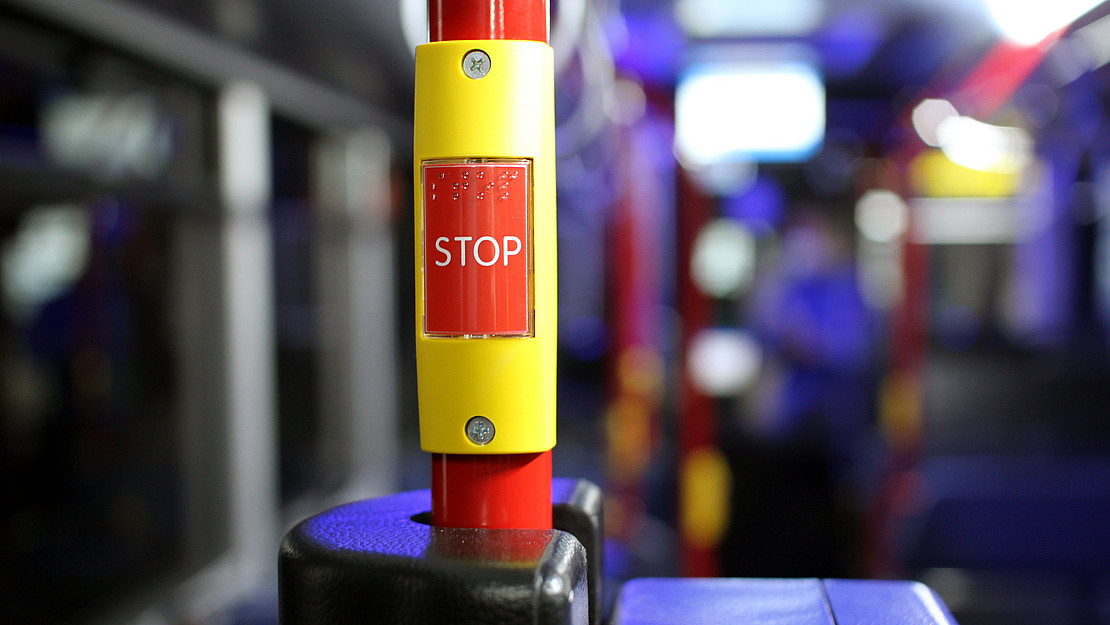This page contains automatically translated content.
How public transport is winning back passengers despite Corona
 Image: University of Kassel.
Image: University of Kassel.In April 2021, researchers from the Department of Transportation Planning and Systems surveyed more than 900 people in Kassel, Germany, about their risk perceptions related to public transportation use. At this point in the third Corona infection wave, citizens were urged to significantly reduce contacts, the health care situation was tense, less than half of the population was still vaccinated, and the federal emergency brake was in place. In the representative survey, researchers identified four groups of people: Loyal users, who used public transit as often or more often than before the pandemic; Reducers, who now used public transit less often or much less often; Pandemic dropouts, who did not currently use public transit and reported using public transit less often only since the pandemic; and Nonusers, who did not use public transit either before the pandemic or currently.
The key finding was that, with the exception of loyal users, all respondents perceived a higher risk of infection on public transport compared with other comparable everyday situations, such as shopping at the supermarket or visiting the hairdresser. "Thus, the increased risk perception is not a personality trait, but the respondents specifically assess the situation in buses and trains as dangerous - and thus overestimate the actual risk of infection," explains transport scientist Natalie Schneider. However, various studies have come to the conclusion that there is no increased risk of infection in public transport compared to other everyday situations. This may be due, for example, to the effective fresh air ventilation systems and the short contact time, and to the fact that wearing masks on public transport has become the new norm in Germany.
"Public transport must once again be perceived as a safe place if we are to achieve the transport turnaround and climate protection goals," demands Prof. Dr. Carsten Sommer, head of the Department of Transport Planning and Systems. "In this context, our results on risk perception can be the basis for measures to make public transport more pandemic-resistant and more attractive for passengers in the future." For example, the researchers recommend targeted communication and education about objective risks as well as safety measures for all groups of people identified in the survey. Among these, compliance with the mask requirement was also rated as the most important protective measure by all groups at the time of the survey. To reduce the subjectively perceived risk, for example, the automatic opening of the doors at the stops is suitable, although this technical measure only has an effect of up to an additional 10% air circulation due to the good ventilation systems. This is perceived positively by loyal public transport users in particular.
To win back pandemic dropouts, the researchers recommend active communication about what public transport has learned from the pandemic and what now improves safety in vehicles. In the perception of non-users, the biggest criticism is not the health risk of the pandemic, but the lack of comfort in the vehicles, according to the survey. These individuals could be convinced to use public transit, for example, by actively emphasizing comfortable and flexible travel in inner cities by public transit as opposed to driving and searching for parking.
Publication (Open Access): https://www.frontiersin.org/articles/10.3389/fpsyg.2022.926539/full
More on the EMILIA research project (development of a pandemic-resistant public transport system): www.uni-kassel.de/go/emilia
Contact:
Dipl.-Ing. M. Sc. Natalie Schneider
University of Kassel
Department of Transportation Planning and Systems
Phone: +49 561 804-3279
E-Mail: N.Schneider[at]uni-kassel[dot]de
Press contact:
Sebastian Mense
University of Kassel
Communications, Press and Public Relations
Phone 0561 804-1961
E-mail: presse[at]uni-kassel[dot]de